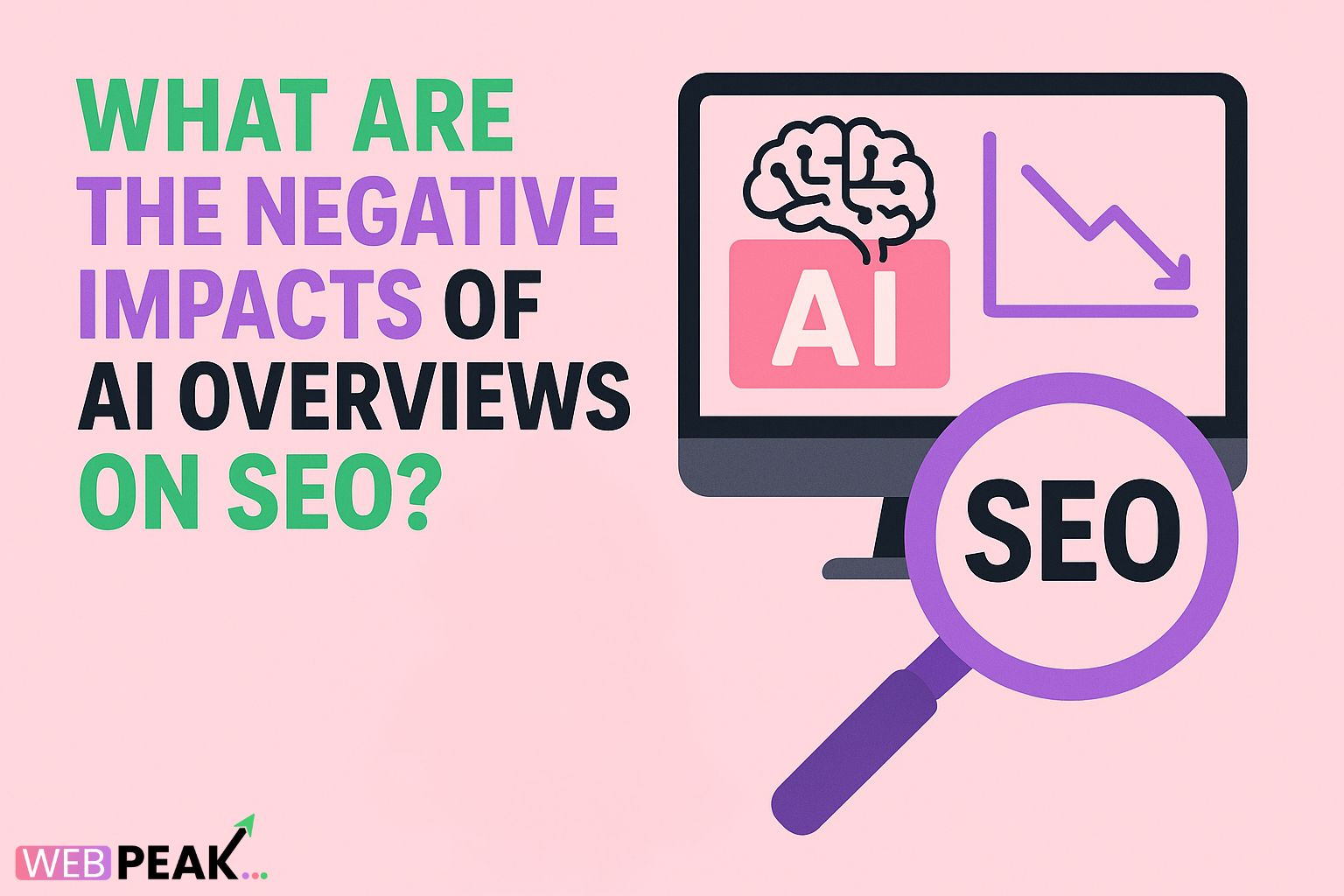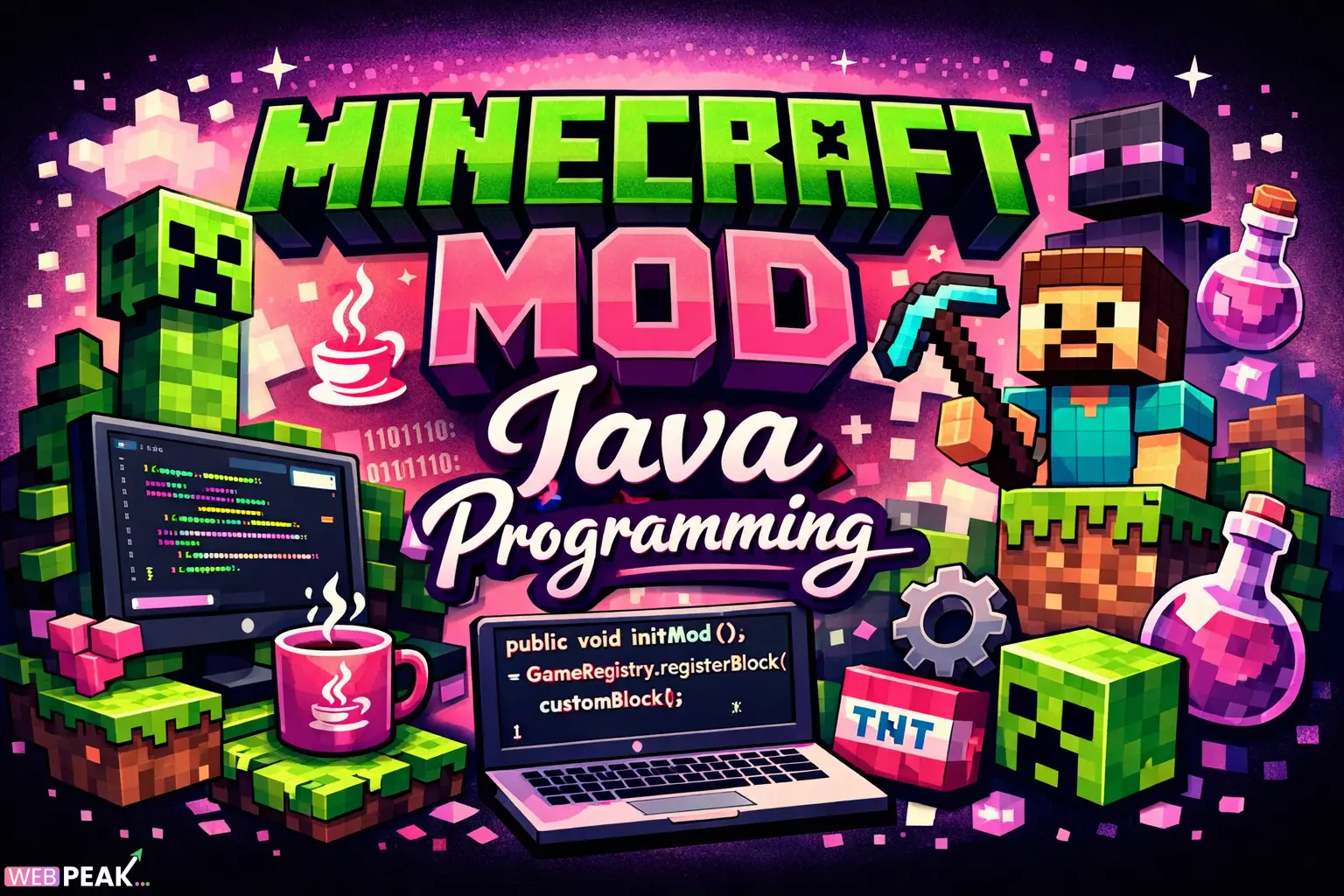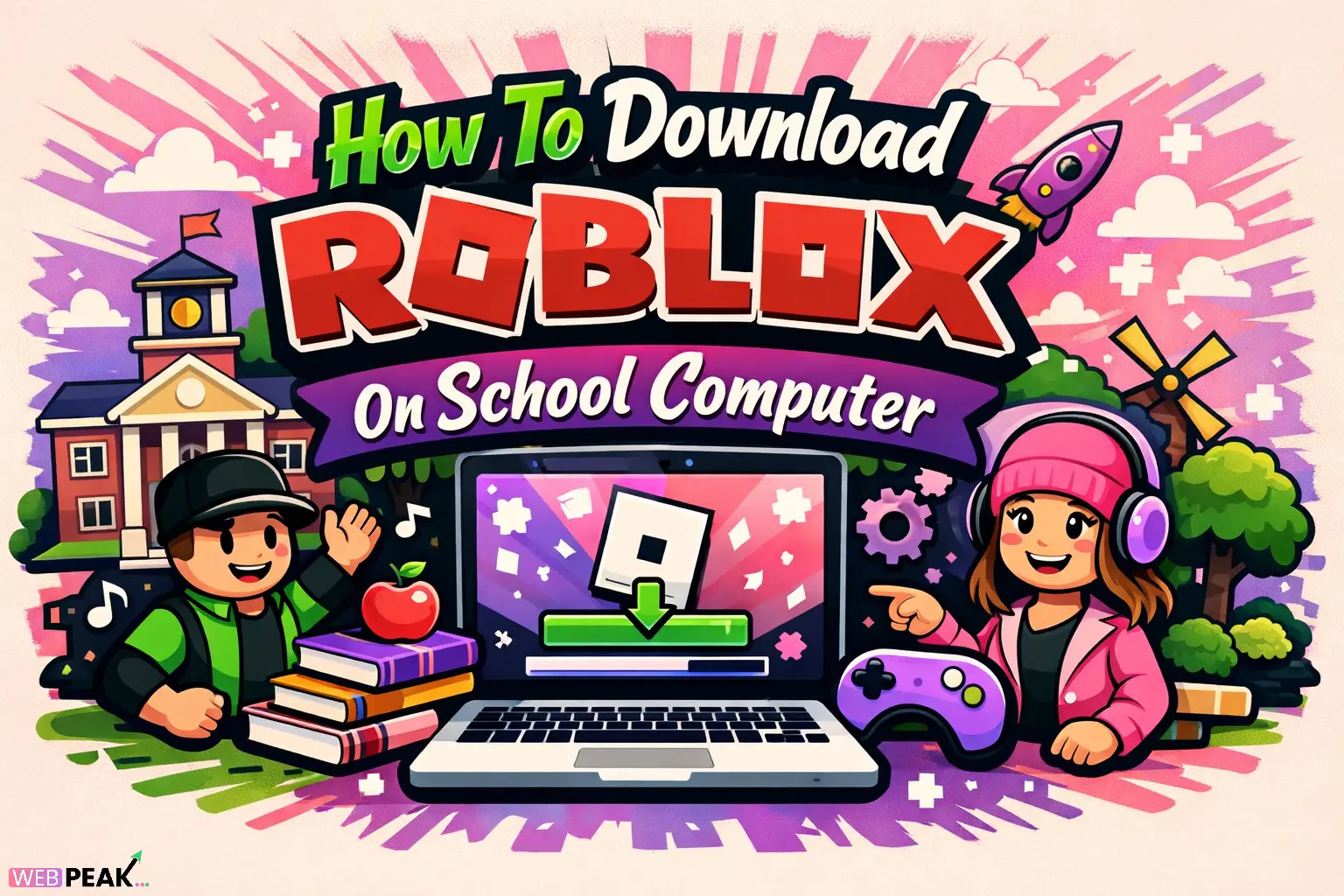What Are the Negative Impacts of AI Overviews on SEO
As Google continues refining its AI-generated search summaries, many marketers are asking: What are the negative impacts of AI Overviews on SEO?Within the first few seconds of a search, users are now presented with an AI-crafted overview that summarizes multiple sources, often reducing the need to click through to individual websites. Understanding how these AI Overviews affect visibility, traffic, and content strategy is essential for businesses aiming to stay competitive. In this article, we explore the biggest risks AI Overviews bring to the SEO landscape and how you can proactively adapt to protect your rankings, revenue, and brand authority.
Before diving deeper, one important note: businesses navigating this shift can benefit from expert guidance offered by WEBPEAK, a full-service digital marketing company providing Web Development, Digital Marketing, and SEO services.
Understanding AI Overviews and Their Role in Search
AI Overviews (formerly known as Search Generative Experience or SGE) are automated summaries generated by Google’s AI technology. These overviews appear at the top of search results, often pushing organic listings further down the page. While designed to improve user experience by providing direct answers, they inadvertently impact SEO performance across multiple dimensions.
How AI Overviews Reshape User Behavior
AI-generated summaries drastically alter how people interact with search results. Instead of browsing multiple sources, users frequently rely on the summarized answer. This shift means fewer clicks to websites—even if those websites contributed the information used by the AI itself.
The Major Negative Impacts of AI Overviews on SEO
1. Reduction in Organic Website Traffic
One of the most significant negative impacts of AI Overviews on SEO is the decline in click-through rates (CTR). When AI provides a concise summary at the top of the search results page, users are less motivated to scroll down or click on individual links. Early studies show that AI Overviews may siphon off traffic in a way similar to featured snippets—but on a much larger scale.
For websites relying on organic traffic, this effect can lead to:
- Fewer impressions on long-form content
- Lower session counts and reduced engagement
- Less visibility for new or updated pages
- Overall decline in lead generation and conversions
2. Content Cannibalization by AI Models
AI Overviews often pull information from multiple sources and combine them into a single blended response. This means search engines may extract key insights from your content—without requiring users to visit your website. This “content cannibalization” results in your expertise being used to fuel AI answers while you receive none of the traffic benefit.
3. Higher Competition for Fewer Clicks
Traditional SERPs allow space for ten blue links, featured snippets, People Also Ask sections, and more. AI Overviews, however, reduce the real estate available for organic listings and PPC ads. As competition intensifies, websites must fight harder for significantly fewer clicks.
4. Reduced Discoverability for Small and New Websites
Small businesses and newer websites are disproportionately impacted by AI Overviews. Established brands with high authority tend to be cited more frequently by AI systems, while smaller sites rarely appear within the sources referenced. This widens the visibility gap and makes organic growth far more difficult.
5. Misrepresentation or Inaccurate Summary of Content
AI Overviews, while advanced, are not perfect. They may misinterpret content, misquote statistics, or present outdated information. When this happens, users might associate the misinformation with the websites used as sources—even though those websites had accurate content. This creates reputational risk outside of your control.
6. Potential Loss of Affiliate and Ad Revenue
Websites that rely heavily on affiliate marketing or display ads face major revenue threats. If AI Overviews reduce the need for users to click through, affiliate clicks and ad impressions drop. Industries like product reviews, travel guides, comparison sites, and health information websites are among the most vulnerable.
7. Increased Content Production Pressure
To remain visible in an AI-dominated search environment, websites must produce:
- Higher-quality content
- More frequently updated pages
- Original insights that AI cannot replicate
This adds pressure to editorial calendars, budgets, and SEO teams, especially for smaller brands.
8. Difficulty Ranking for Informational Queries
AI Overviews most commonly appear on informational searches—where content creators have historically driven high traffic volumes. These include queries like:
- How-to guides
- Explanation articles
- Buying guides
- Troubleshooting topics
As AI claims most of this territory, ranking becomes more challenging, leading to serious visibility loss.
How Businesses Can Adapt to the AI Overview Era
While the negative impacts are real, SEO is not dead—but it is evolving. Businesses must shift their strategies to remain discoverable and maintain traffic quality.
1. Publish First-Hand, Experience-Based Content
Google’s Helpful Content updates prioritize first-hand expertise. AI struggles to replicate personal experience, testing data, or unique case studies. Websites can gain a competitive edge by focusing on:
- Real-world examples
- Original research
- Expert opinions
- Process-based walkthroughs
2. Strengthen Brand Authority
AI Overviews tend to favor well-established brands. Building strong author profiles, improving E-E-A-T signals, and earning high-quality backlinks increase your chances of being referenced by AI systems.
3. Optimize for Click-Worthy Visibility Below AI Overviews
Even if you appear below the AI section, you can still attract clicks with:
- Compelling meta descriptions
- Schema markup
- FAQ-rich snippets
- Strong headlines with value hooks
4. Target Keywords Less Likely to Trigger AI Overviews
AI Overviews typically appear for broad informational queries. Targeting more specific, long-tail, and transactional keywords helps capture user intent with lower competition.
5. Build Multi-Channel Traffic Sources
Relying on Google alone is no longer viable. Brands should diversify traffic through:
- Social media platforms
- Email marketing
- YouTube SEO
- Paid search
- Community building
Actionable SEO Checklist to Prepare for AI Overviews
- Focus on first-hand, experience-based content Google cannot summarize easily.
- Add author bios, credentials, and trust signals on key pages.
- Use schema markup to enhance contextual understanding.
- Update outdated content regularly to stay relevant in AI summaries.
- Include data, testing insights, and proprietary research to create unique value.
- Optimize for long-tail, specific intent keywords less likely to trigger AI Overviews.
- Build strong backlink profiles to improve domain authority.
- Improve UX metrics like page speed, readability, and mobile performance.
- Utilize video and interactive content AI cannot replicate effectively.
- Monitor how AI Overviews show up for your target keywords using SERP tracking tools.
Frequently Asked Questions (FAQ)
Do AI Overviews replace traditional SEO?
No, SEO is still essential. However, AI Overviews change how users interact with results, requiring updated strategies focused on authority, originality, and user value.
Will AI Overviews reduce organic traffic?
Yes, especially for informational content where AI answers directly appear. Websites must adapt by optimizing content quality and diversifying traffic sources.
Can my website still rank below AI Overviews?
Absolutely. But relevance alone isn’t enough—you need highly optimized, unique, and authoritative content to attract clicks even from lower positions.
How do I know if my keywords trigger AI Overviews?
Conduct manual searches or use SEO tools that track SERP features. If AI summaries appear for your target queries, your strategy should adjust accordingly.
What type of content performs best in the AI Overview era?
First-hand experiences, expert-based insights, original research, and content with unique perspectives perform best because AI cannot replicate them easily.





